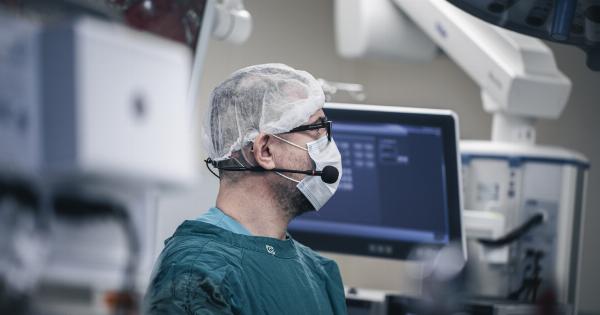Hernia is a medical condition that occurs when an organ or tissue pushes through an opening in the muscle or connective tissue. It can happen in different parts of the body, including the abdomen, groin, and diaphragm.
While hernias are not usually life-threatening, they can cause discomfort and increase the risk of complications if left untreated. In this article, we will discuss the symptoms and risk factors of hernia to help you understand this condition better.
Types of Hernia
There are several types of hernia, and each has its unique characteristics and symptoms. The most common types are:.
1. Inguinal Hernia
Inguinal hernia is the most common type of hernia, accounting for 70 percent of cases. It occurs when the intestine or bladder protrudes through the inguinal canal in the groin area. This type of hernia is more common in men than in women.
2. Femoral Hernia
Femoral hernia occurs when the intestine or fatty tissue protrudes through the femoral canal, which is located just below the inguinal canal. This type of hernia is more common in women than in men.
3. Umbilical Hernia
Umbilical hernia occurs when a part of the intestine protrudes through the abdominal muscles near the belly button. It is more common in infants, but it can also occur in adults.
4. Hiatal Hernia
Hiatal hernia occurs when a part of the stomach pushes through the diaphragm into the chest. It can cause heartburn, regurgitation, and difficulty swallowing.
5. Incisional Hernia
Incisional hernia occurs when the intestine protrudes through a surgically repaired incision in the abdominal wall. It is more common in people who have had abdominal surgery.
Symptoms of Hernia
The symptoms of hernia may vary depending on the location and size of the hernia. However, the most common symptoms of hernia include:.
1. A bulge or lump in the affected area
A visible bulge or lump in the affected area is the most common symptom of hernia. The lump may be more prominent when standing or coughing and may disappear when lying down.
2. Pain or discomfort in the affected area
Hernias can cause pain or discomfort, especially when coughing, lifting, or bending over. The pain may be dull or sharp and may worsen after long periods of standing or sitting.
3. Nausea and vomiting
In some cases, hernias can cause nausea and vomiting, especially when the intestine is trapped or strangulated.
4. Heartburn and regurgitation
Hiatal hernia can cause heartburn, regurgitation, and difficulty swallowing.
5. Difficulty passing stools or gas
Hernias that occur in the lower abdomen can cause difficulty passing stools or gas.
Risk Factors for Hernia
Hernias can occur in anyone, but some people are at higher risk than others. The risk factors for hernia include:.
1. Age
As you get older, your muscles and connective tissues weaken, increasing the risk of hernia.
2. Gender
Men are more likely to develop inguinal hernia, while women are more likely to develop femoral hernia.
3. Family history
Hernias can run in families, suggesting a genetic predisposition to the condition.
4. Pregnancy
Pregnancy can increase the risk of hernia, especially umbilical hernia, due to the abdominal pressure caused by the growing fetus.
5. Obesity
People who are overweight or obese have a higher risk of hernia due to the increased pressure on the abdominal muscles and connective tissues.
6. Smoking
Smoking can weaken the muscles and connective tissues in the body, increasing the risk of hernia.
7. Chronic coughing or straining
Chronic coughing or straining during bowel movements can increase the risk of hernia, especially in people with weak abdominal muscles.
Conclusion
Hernia is a common medical condition that can cause discomfort and increase the risk of complications if left untreated.
The symptoms and risk factors of hernia can vary depending on the location and size of the hernia, but the most common symptoms include a visible bulge or lump, pain or discomfort, nausea and vomiting, heartburn and regurgitation, and difficulty passing stools or gas. The risk factors for hernia include age, gender, family history, pregnancy, obesity, smoking, and chronic coughing or straining. If you experience any symptoms of hernia, it is essential to seek medical attention to prevent complications.

























